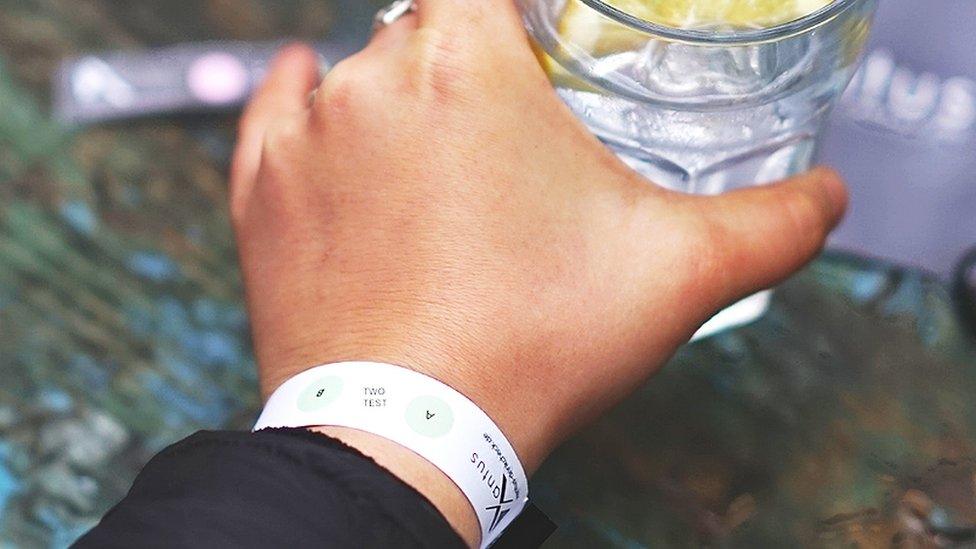'I collapsed in the street after drink spiking'
- Published
Fresher Lily Petch says her drink was spiked on her second night at university.
Lily Petch arrived at university ready for a new adventure - but her drink was spiked on just her second night.
"People said I went from having the best night of my life to then losing consciousness and feeling really sick," said the 18-year-old.
"I couldn't keep my head up, I remember feeling really unsteady and not really knowing what was going on.
"I went unconscious, fell in the road, I was throwing up everywhere."
Reports of drink-spiking incidents, like Lily's, have been rising.
Figures obtained by the BBC Radio 5 Live Investigations Unit have revealed more than 2,600 reports of drink-spiking incidents in England and Wales since 2015.
The data from 22 out of 43 police forces and the British Transport Police also revealed 72% of alleged victims were female.
Cases involving under-18s have more than doubled, from 32 in 2015 to 71 in 2018 - and between January and September 2019, 68 cases had already been recorded, suggesting the total figure for 2019 is set to hit a five-year high.
'Head pounding'
Lily moved to Lincoln to study criminology and sociology in September 2019.
On her second night in the city, she joined streams of other new students heading out for their first big night out in freshers' week.
Lily, who was joined by a friend from home, said initially the night had been everything she had hoped for - but after arriving at a nightclub, things had gone downhill very quickly.
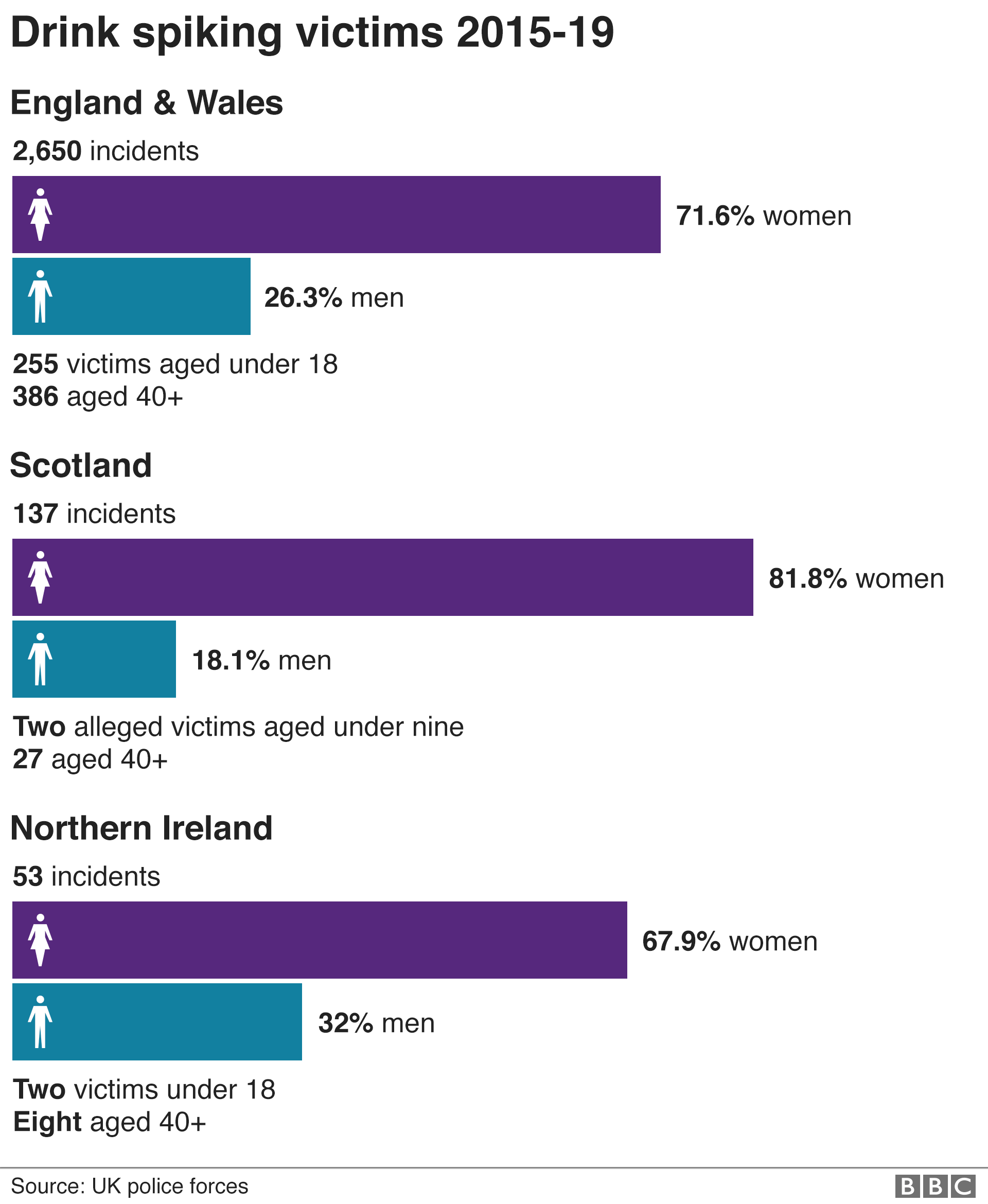
"I remember feeling really on edge all of a sudden. I was sat on a bench and it was like everything kind of hit me at once," she said.
"People next to me, what they were saying wasn't making sense. I was feeling really nauseous and my head was pounding."
Lily said she had quickly begun to lose consciousness as her friends had tried to get her out of the club.
"I couldn't keep my head up, I remember feeling really unsteady and not really knowing what was going on," she said.
After receiving treatment at hospital, Lily was allowed to recover at home - but the experience left her nervous of going out in the city again.
Drink-testing kits
Lincolnshire is one of two regions in England to have launched schemes that see pubs and clubs keep drink-spike test kits behind the bar, enabling staff to test drinks using a swab and get an instant result.
"I'm quite surprised something as easy as a tiny little swab can detect whether your drink has been spiked," Lily said.
"It's definitely reassured me and made me feel better about going out.
"I was quite anxious about it but now I feel like knowing these kits are available in quite a few bars, I can go out and not have to worry because I can test my drink as soon as get it."

How to help a friend who you think has had their drink spiked
Tell a bar manager, bouncer or member of staff
Stay with them and keep talking to them
Call an ambulance if their condition deteriorates
Don't let them go home on their own
Don't let them leave the venue with someone you don't know or trust
If possible, try to prevent them drinking more alcohol as this could lead to more serious problems
Urine and blood tests carried out in the first 24-72 hours are most likely to detect drug traces

Colin Mackie, whose 18-year-old son, Greg, died in a suspected drink-spiking incident, has called for the testing kits to be rolled out to pubs and clubs across the country.
Colin, 57, from Biggar in South Lanarkshire, said: "We need them rolled out everywhere, so that if someone feels funny they can go up to the bar for it to be checked.
"If they find out they have been spiked, they can take immediate action like call the police or ambulance before you leave and the effect hits you."
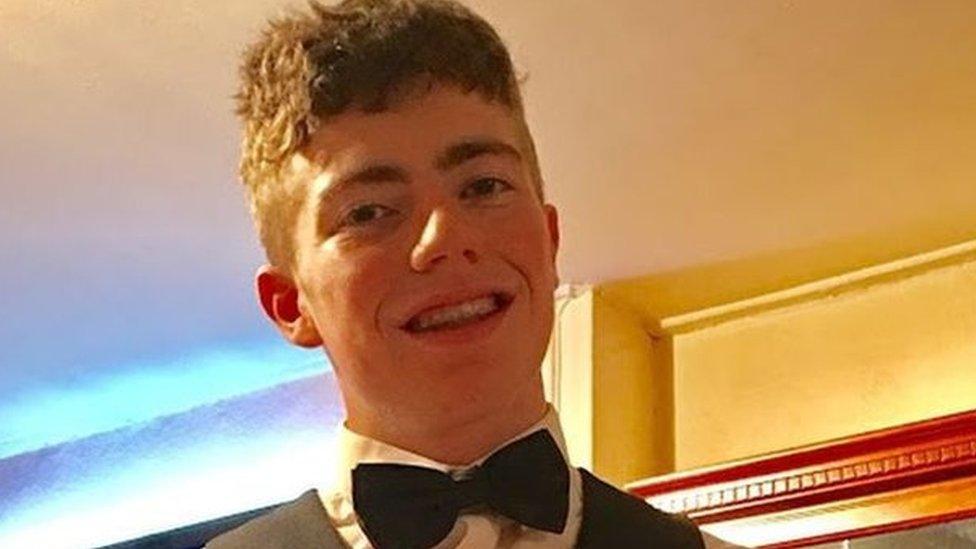
Greg Mackie died following suspected drink spiking
Greg, a TV and media student, was found collapsed in his halls of residence and a toxicology report found he had the equivalent of five ecstasy tablets in his system but there was no trace of alcohol.
Since his son's death Mr Mackie, a delivery driver, has been campaigning to raise awareness of drink spiking and has been inundated with people contacting him for help and advice.
"Drink spiking is a much bigger problem than people realise and I think it's because of how available and cheap drugs are," he said.
"Most people who contact us for advice haven't reported it to the police."
Deputy Chief Constable Rachel Kearton, of the National Police Chiefs Council said as part of licensing requirements police were working "closer than ever before with pubs and clubs to make sure all staff are able to recognise vulnerability and when a crime has occurred".
Ms Kearton warned people to contact police quickly if they suspected they had been spiked, to allow officers to capture evidence, because the drugs used to spike drinks "dissipate quickly".

Which substances are used to spike drinks?
Drugs used in drink spiking are often referred to as "date-rape drugs", although they're not always used for sexual assault.
Some examples of drugs reportedly used for drink spiking include:
gamma-hydroxybutyrate (GHB)
gamma-butyrolactone (GBL)
tranquillisers, most often benzodiazepines, including Valium (diazepam) and Rohypnol
ketamine
These drugs are particularly dangerous when mixed with alcohol because they combine to have a very powerful effect.
In extreme cases, this can lead to a coma or even death.
The drugs may come in powder, tablet or liquid form, and don't always have a noticeable taste or smell.
- Published6 December 2018
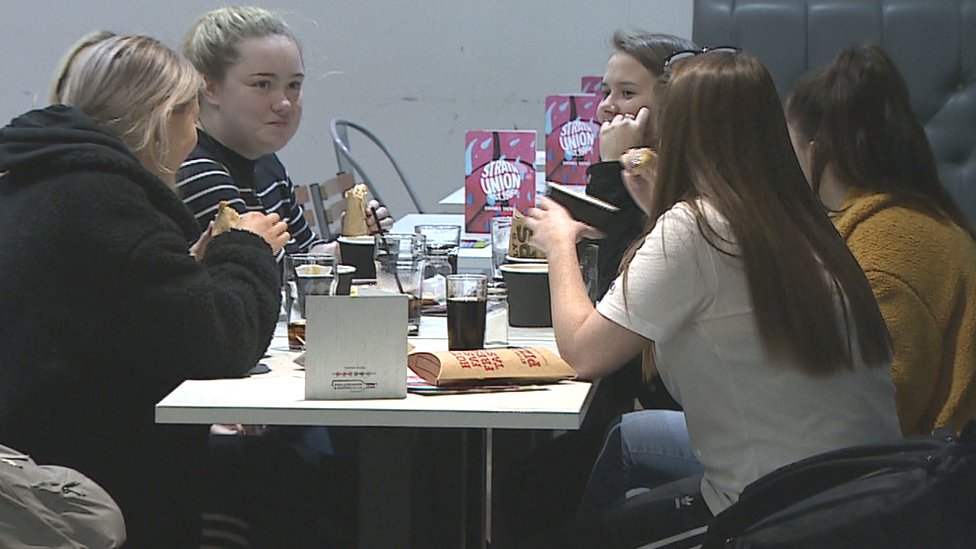
- Published6 December 2018
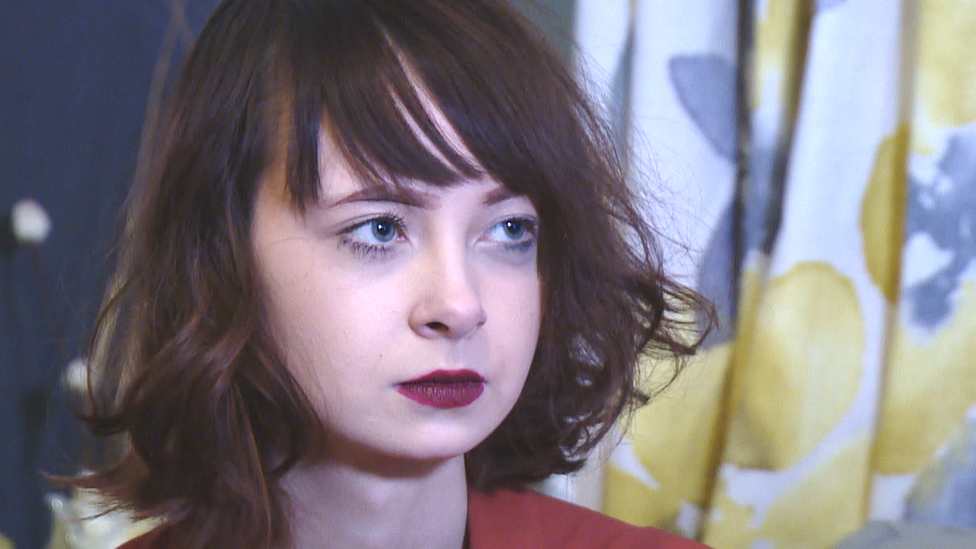
- Published17 June 2019
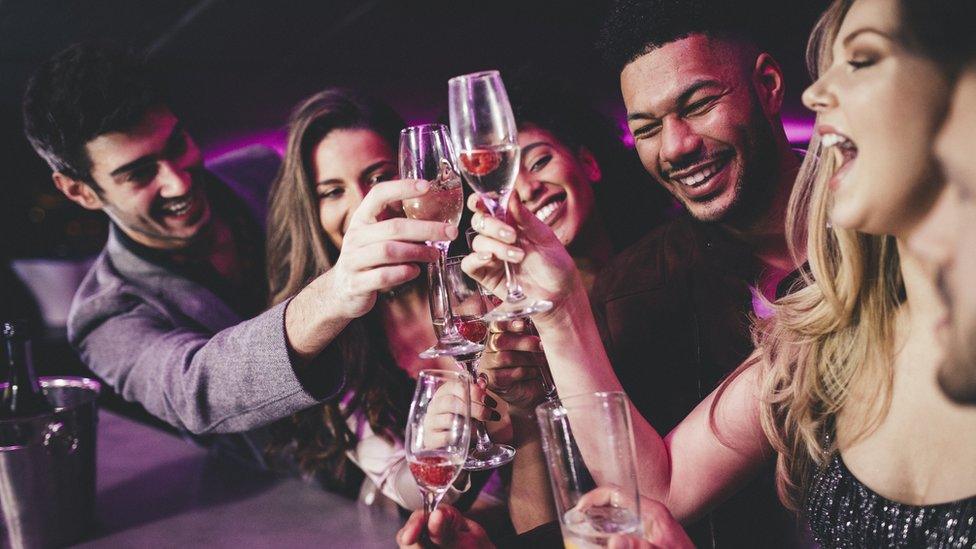
- Published18 April 2019
